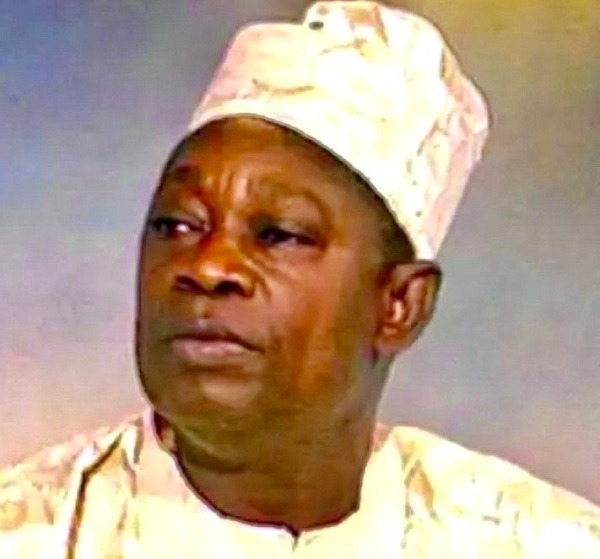“MKO Abiola’s Son Reflects on Babangida’s Apology: ‘The Truth Is Finally Out’”
 In a candid conversation, Abdulmumuni Abiola, son of the late Moshood Kashimawo Abiola (MKO), discusses the recent remarks made by former military Head of State, General Ibrahim Babangida, acknowledging that MKO Abiola won the June 12, 1993, presidential election. Abdulmumuni, who was only eight years old when the elections took place, shares his thoughts on Babangida’s statement, the trauma his family endured, and the enduring message left behind by his father.
In a candid conversation, Abdulmumuni Abiola, son of the late Moshood Kashimawo Abiola (MKO), discusses the recent remarks made by former military Head of State, General Ibrahim Babangida, acknowledging that MKO Abiola won the June 12, 1993, presidential election. Abdulmumuni, who was only eight years old when the elections took place, shares his thoughts on Babangida’s statement, the trauma his family endured, and the enduring message left behind by his father.
Acknowledging the Past
Abdulmumuni’s reaction to Babangida’s acknowledgment is marked by both acceptance and a focus on healing. “I already knew my father won the election,” he says, reflecting on his personal belief and the general consensus among Nigerians. For him, the real significance of Babangida’s statement lies in the expression of remorse. “The fact that he acknowledged his mistakes and expressed regret is what matters,” Abdulmumuni adds, underscoring the importance of forgiveness and the human tendency to err. His emphasis is on reconciliation, not just for his family but for the entire nation. “I think that was more important,” he notes, “to hear the head of state at the time say those words.”
The Personal Impact of June 12
Reflecting on the emotional scars left by June 12, Abdulmumuni admits the lasting trauma the event caused. “It brings up a lot of emotions,” he says, remembering the hardships his family faced. The annulment of his father’s election victory set off a chain of events that led to his father’s imprisonment and eventual death, as well as the tragic loss of his mother, who died while trying to secure his father’s release. For Abdulmumuni, the aftermath of that period meant the loss of a protector and a guiding figure. He recalls, “I basically became an orphan based on that event.”
Despite the deep personal pain, Abdulmumuni reflects on how his father’s unwavering belief in forgiveness shaped his perspective. He points to religion and the values of moving forward, highlighting that while the trauma remains, it is crucial to channel pain into positive action. “We can’t change the past, but we can focus on the future,” he says, aiming to ensure his father’s vision for a better Nigeria is not lost.
Moving Forward with His Father’s Vision
Abdulmumuni speaks of his father’s enduring vision for Nigeria, emphasizing that his sacrifice was not in vain. He’s focused on honoring that vision by contributing to the nation’s growth. “My father wanted something, and he made promises, which he couldn’t keep. It’s up to us, his children, to push that agenda forward,” he asserts. This forward-thinking approach, he believes, can help alleviate some of the collective pain Nigerians endured.
For Abdulmumuni, the journey of democracy is ongoing. “Democracy is not a destination, it’s a journey,” he explains, expressing his commitment to the Nigerian cause and encouraging others to do the same. He stresses that the struggle of June 12 and his father’s message should inspire current and future generations to work together for a better Nigeria.
A Call for Action from the State
Looking toward the future, Abdulmumuni refrains from setting expectations for the current administration, acknowledging that the recognition of his father’s role in the democracy struggle is beyond his personal desires. He recalls the formal acknowledgment of his father’s contribution by President Buhari, who declared June 12 as Democracy Day and recognized MKO Abiola as the rightful winner of the 1993 elections.
At this stage, Abdulmumuni believes it is no longer about what he personally expects, but about securing his father’s legacy and protecting his estate. He remembers the destruction of his father’s businesses following his incarceration and how this created deep divisions within the family. “It divided the whole family,” he reflects, adding that many of their lives were irrevocably altered.
Continuing the Legacy of MKO Abiola
Abdulmumuni’s focus is now on continuing his father’s fight for a fairer, better Nigeria, one where his vision for democracy and progress is realized. While he acknowledges the scars left by the past, he remains hopeful that the sacrifice of his father—and the sacrifice of many others—will ultimately lead to a stronger, more unified nation.













